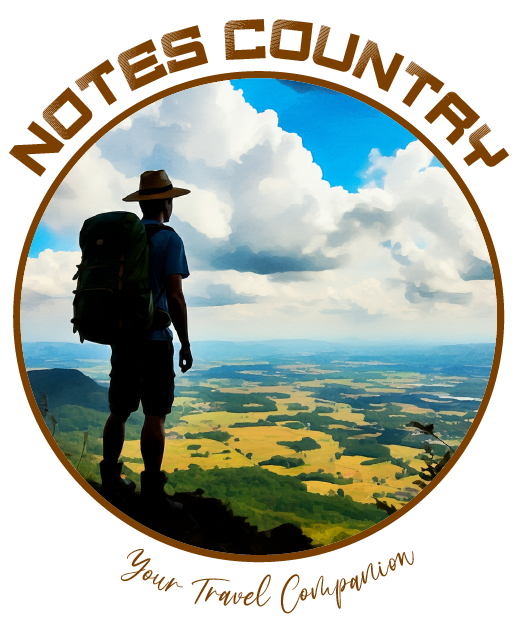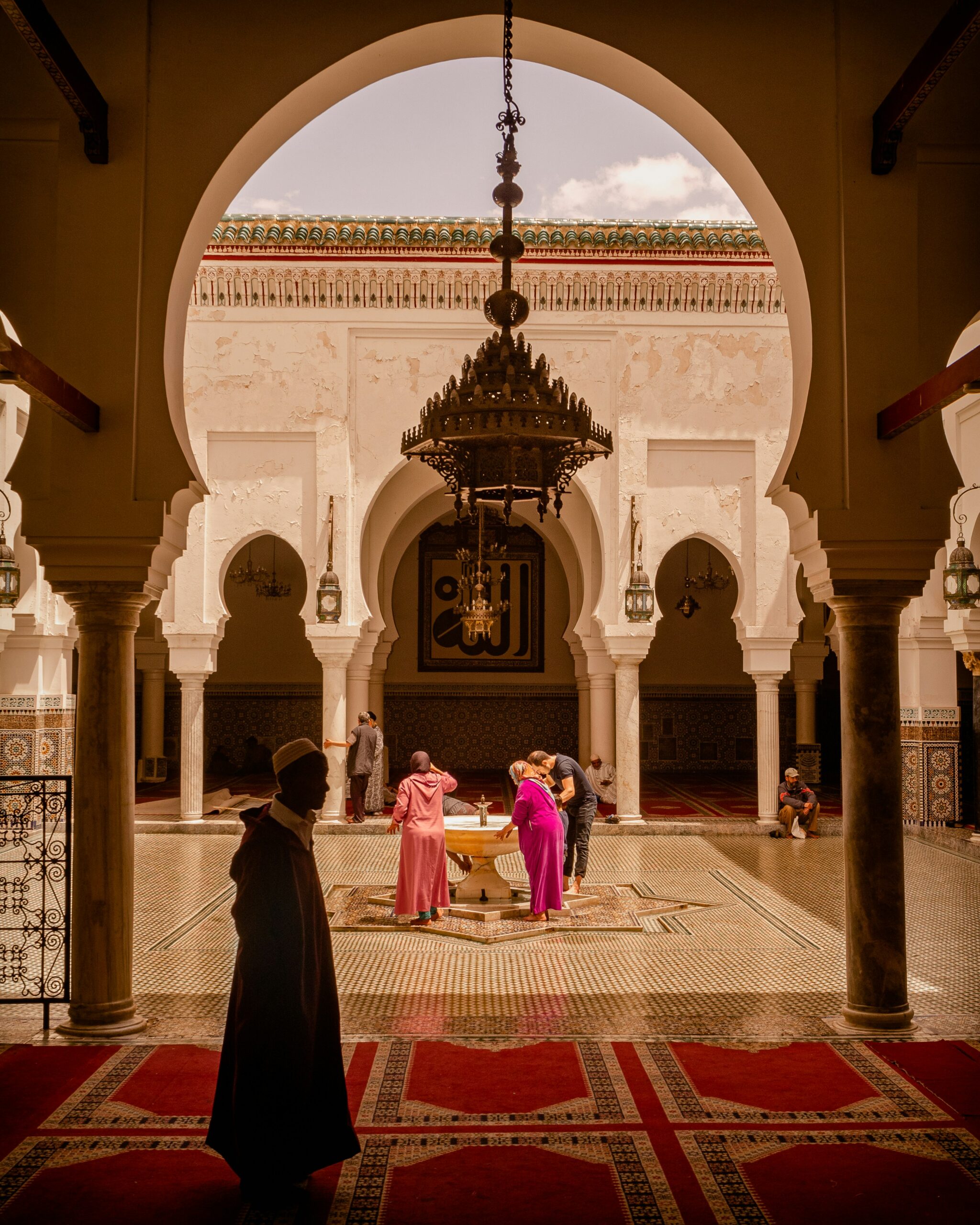Morocco, a land where ancient traditions blend seamlessly with modern life, offers visitors a sensory adventure like no other. From the bustling medinas of imperial cities to the serene expanse of the Sahara Desert, Morocco is a country of stark contrasts and mesmerizing beauty. With its rich history, diverse landscapes, vibrant culture, and renowned hospitality, Morocco invites travelers to lose themselves in its labyrinthine souks, indulge in its flavorful cuisine, and witness breathtaking natural wonders. Whether you’re seeking cultural immersion, outdoor adventures, or simply a taste of the exotic, Morocco promises an unforgettable journey.
Must-see attractions
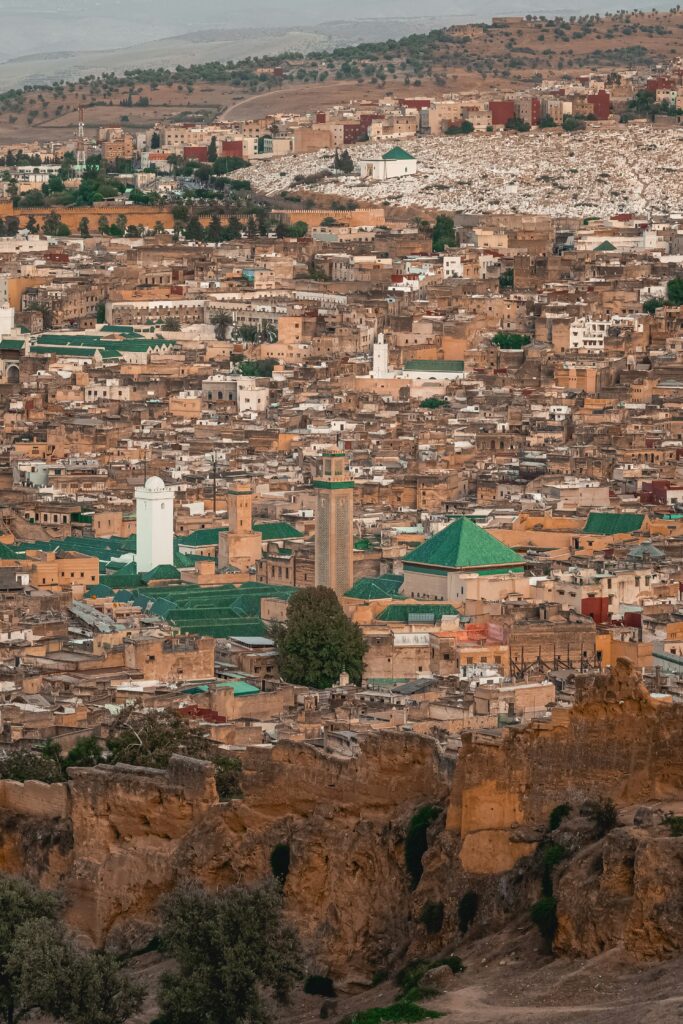
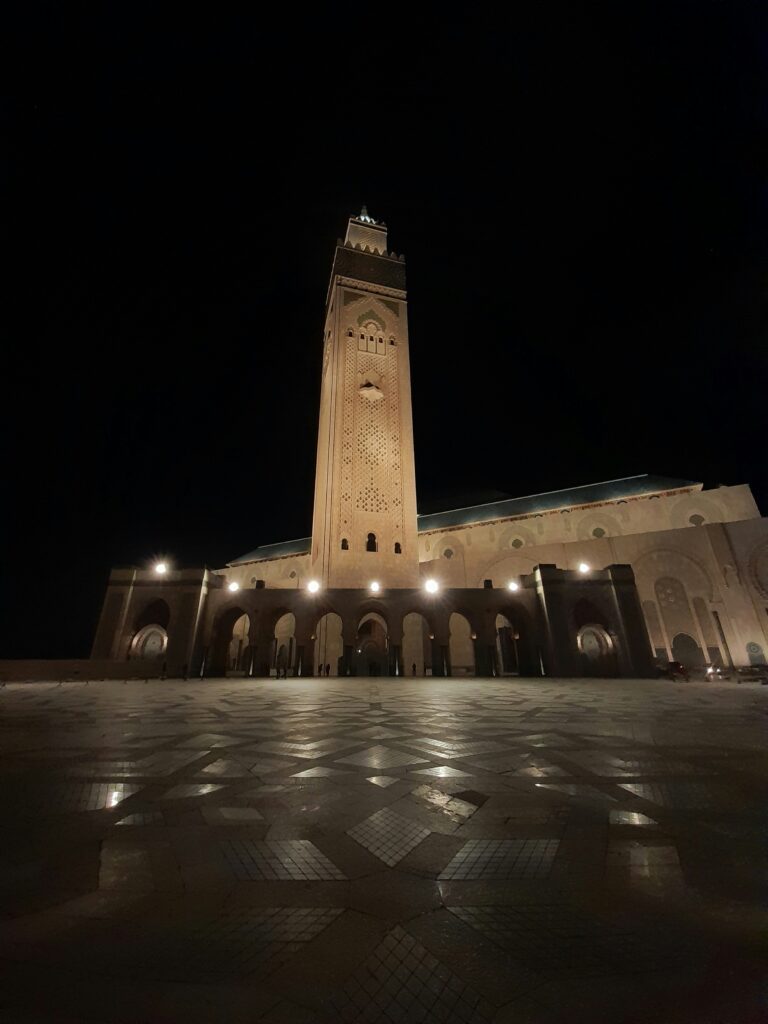
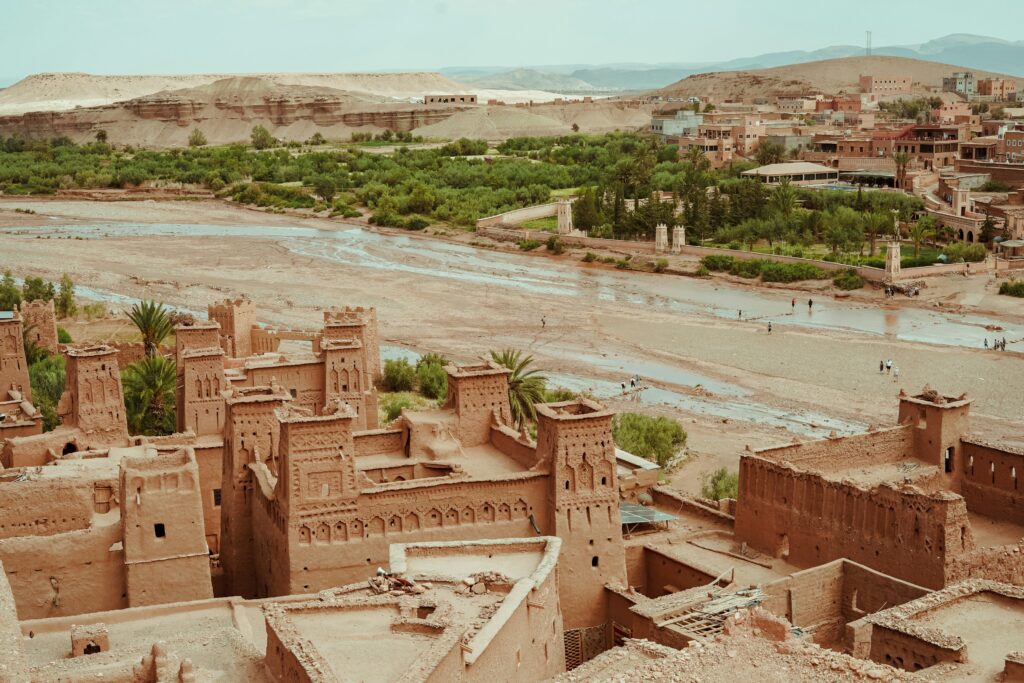
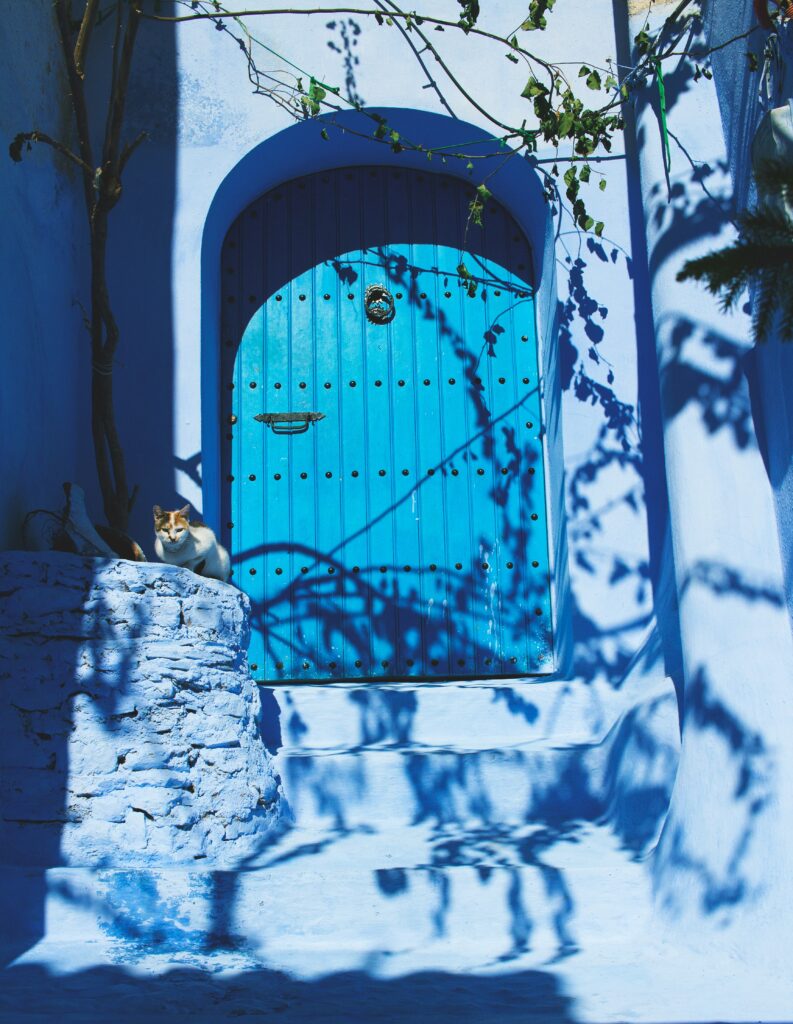
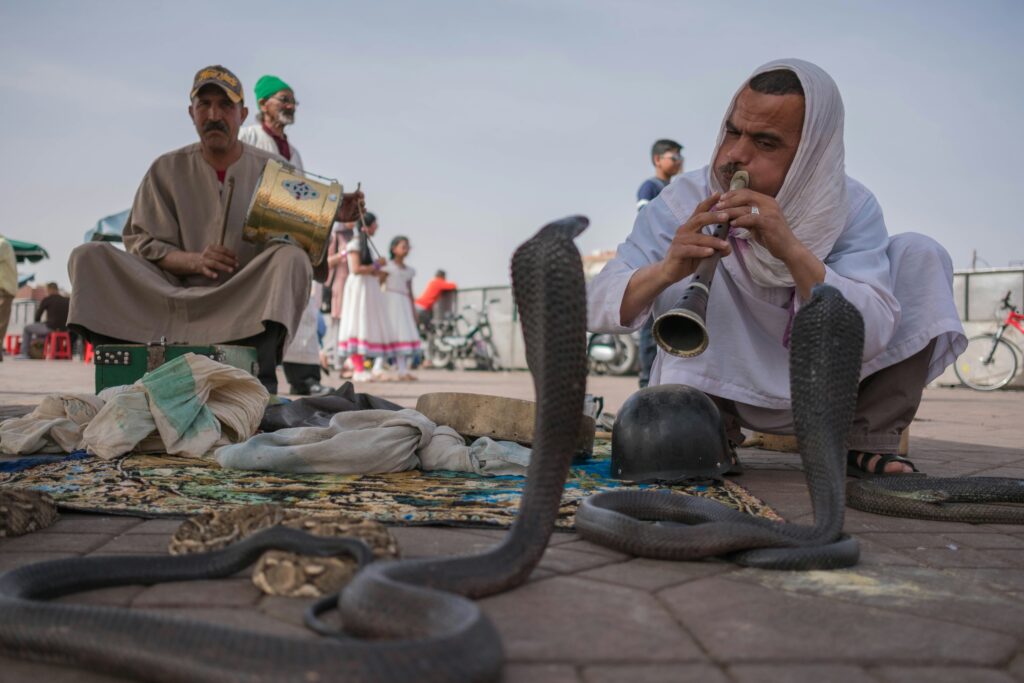
- Hassan II Mosque, Casablanca: One of the largest mosques in the world, featuring stunning Islamic architecture and ocean views.
- Djemaa el-Fna, Marrakech: A lively square and marketplace that transforms into an open-air theater at night.
- Fes el Bali (Old Fes): The world’s largest car-free urban area, home to the oldest university and renowned for its traditional tanneries.
- Sahara Desert: Experience the magic of the desert with camel treks and nights under the stars in Merzouga or Zagora.
- Chefchaouen: The famous “Blue City” nestled in the Rif Mountains, known for its striking blue-washed buildings.
- Ait Benhaddou: A UNESCO World Heritage site and stunning example of traditional Moroccan earthen clay architecture.
- Volubilis: Impressive Roman ruins showcasing well-preserved mosaics and columns.
- Todgha Gorge: A series of limestone river canyons in the eastern part of the High Atlas Mountains.
Popular cities and regions
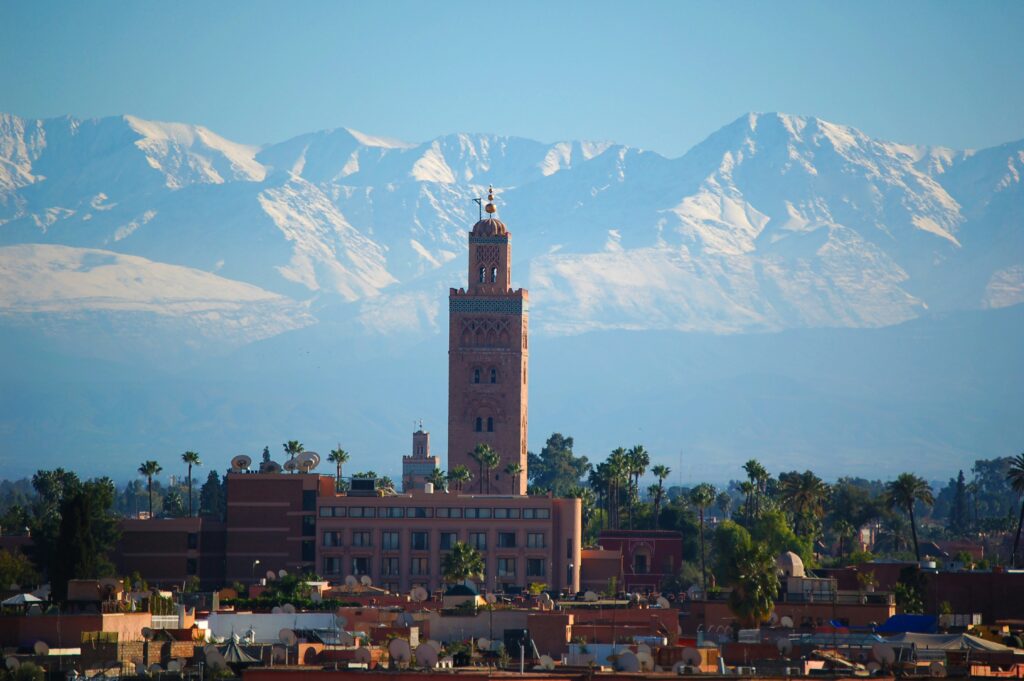
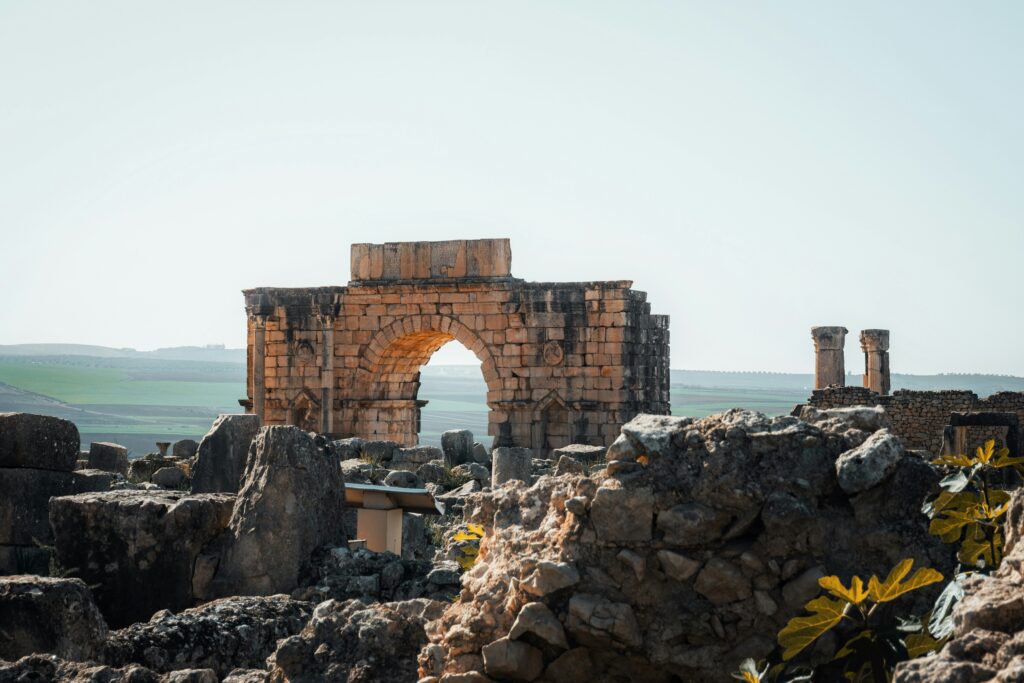
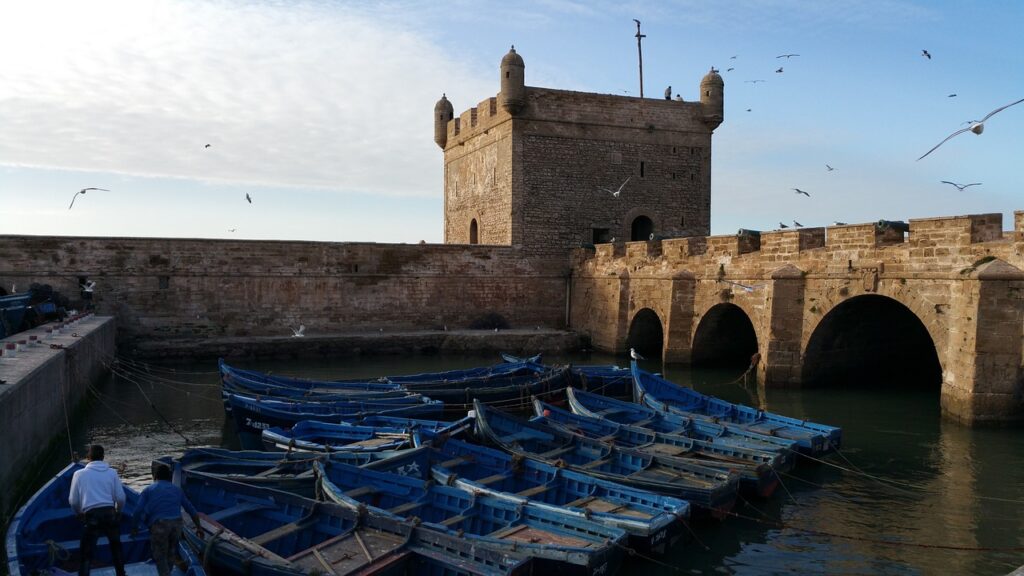
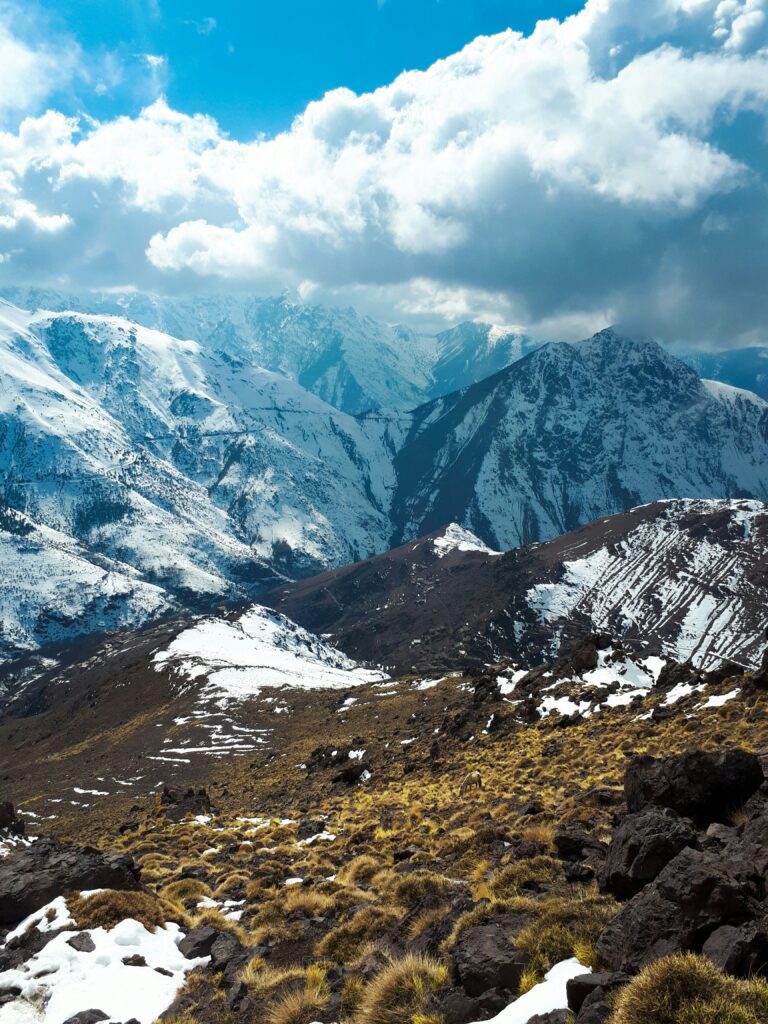
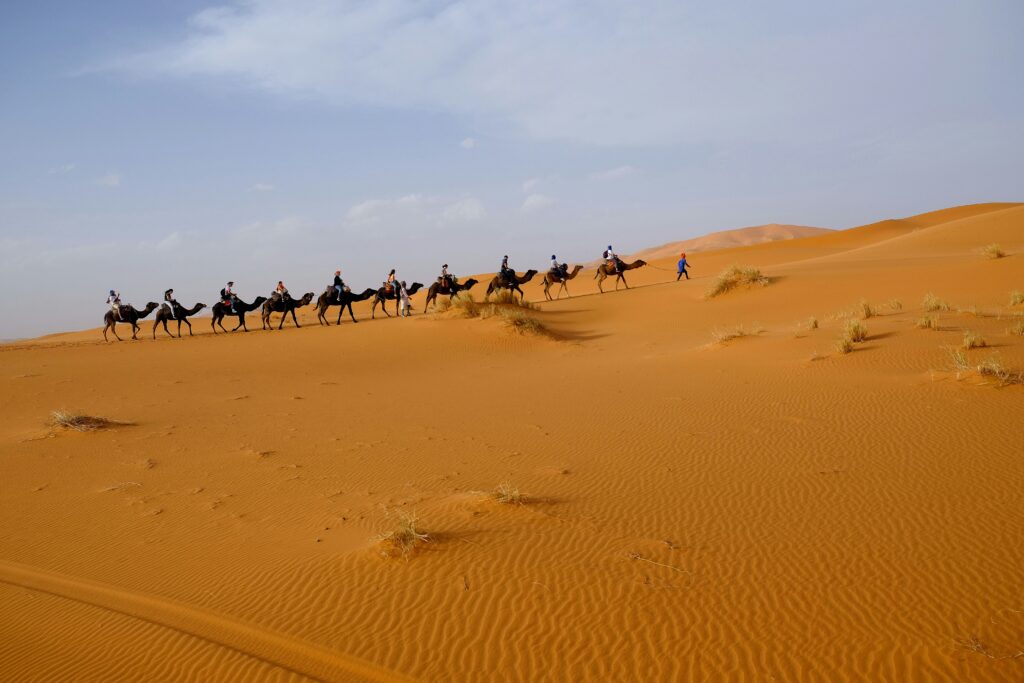
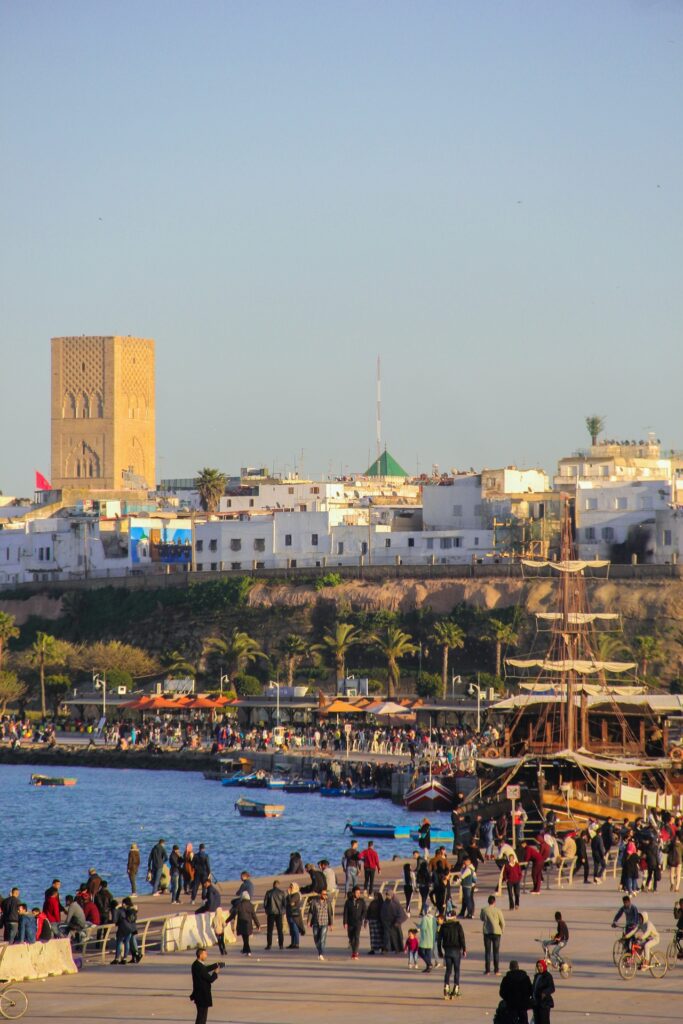
- Marrakech: The “Red City” famous for its medina, palaces, gardens, and vibrant souks.
- Fes: Morocco’s cultural and spiritual capital, known for its medieval Fes el Bali medina.
- Casablanca: The economic heart of Morocco, blending modernity with traditional Moroccan style.
- Chefchaouen: The picturesque blue city in the Rif Mountains.
- Essaouira: A charming coastal town known for its laid-back atmosphere and water sports.
- Atlas Mountains: Home to Berber villages, snow-capped peaks, and excellent hiking trails.
- Sahara Desert: The gateway to the great desert, with popular bases in Merzouga and Zagora.
- Rabat: The capital city, offering a mix of historic sites and modern Moroccan culture.
Suggested itineraries
Imperial Cities Tour (1 week)
- Casablanca (1 day):
- Visit Hassan II Mosque
- Stroll along the Corniche
- Rabat (1 day):
- Explore Kasbah of the Udayas
- Visit Hassan Tower
- Meknes (1 day):
- Tour the grand Bab el-Mansour gate
- Visit the Royal Stables
- Fes (2 days):
- Wander through the medieval medina
- Visit the famous tanneries
- Marrakech (2 days):
- Explore Djemaa el-Fna
- Visit Bahia Palace and the Saadian Tombs
Coastal and Mountain Adventure (10 days)
- Casablanca (1 day): Arrival and Hassan II Mosque
- Essaouira (3 days):
- Relax on the beach
- Try windsurfing or kitesurfing
- Explore the medina and port
- Atlas Mountains (3 days):
- Stay in a traditional Berber village
- Hike to cascading waterfalls
- Visit local markets
- Marrakech (3 days):
- As described in the previous itinerary
- Day trip to Ouzoud Falls
Desert Explorer (2 weeks)
- Marrakech (3 days): City exploration
- Ait Benhaddou (1 day): Visit the ancient ksar
- Todgha Gorge (2 days):
- Hike through the impressive canyons
- Rock climbing (optional)
- Merzouga (3 days):
- Camel trek into the Sahara
- Spend nights in a desert camp
- Sandboarding and 4×4 tours
- Fes (3 days): As described in the first itinerary
- Chefchaouen (2 days):
- Wander the blue-hued streets
- Hike in the surrounding Rif Mountains
Grand Morocco Tour (3 weeks)
Combine elements from all the above itineraries for a comprehensive Moroccan experience, adding:
- Tangier: Explore the meeting point of the Mediterranean and Atlantic
- Asilah: Visit this picturesque coastal town known for its art scene
- Volubilis: Discover the ancient Roman ruins
- Tafraoute: Explore the Anti-Atlas region and see the famous blue rocks
- Agadir: Relax on Morocco’s most popular beach resort
Remember, these itineraries are just starting points. Morocco’s diverse landscapes and rich culture offer endless possibilities for creating your perfect North African adventure. Whether you’re seeking cultural immersion in ancient medinas, relaxation on sun-soaked beaches, or adventure in the mountains and desert, Morocco has something for every traveler. Don’t forget to indulge in the local cuisine, experience a traditional hammam, and take time to sip mint tea and watch the world go by in this fascinating country!
Travel Documents
- Visa: Most visitors from Europe, the US, and many other countries do not need a visa for a stay of less than 90 days. Check the specific requirements for your nationality.
- Passport: Your passport must be valid for at least six months beyond your date of entry into Morocco.
- Travel Insurance: It’s recommended to have travel insurance that covers medical expenses, repatriation, and incidents such as lost luggage.
Entry Requirements
- COVID-19: While COVID-19 restrictions have eased, check the latest updates on testing or vaccination requirements before traveling.
- Restricted Items: Certain substances like drugs, as well as publications or items considered offensive regarding religion or politics, may be prohibited.
Health Conditions
- Vaccinations: No specific vaccinations are required, but it’s recommended to be up-to-date on universal vaccines (hepatitis A, B, tetanus, typhoid).
- Medical Assistance: Private healthcare in major cities like Casablanca, Marrakech, and Rabat is of good quality. However, it’s advisable to have insurance covering potential medical evacuations.
- Water Quality: Tap water is not always safe to drink. It is recommended to drink bottled water or use purification tablets if traveling in rural areas.
Currency and Payment Methods
- Local Currency: The currency is the Moroccan dirham (MAD). 1 dirham is divided into 100 centimes. It’s advisable to exchange some money before arrival, but exchange bureaus and ATMs are easy to find in major cities.
- Payment: Credit cards are accepted in hotels, major restaurants, and shopping malls. However, it’s handy to carry cash for small shops, taxis, and local markets.
Language and Culture
- Local Language: Arabic is the official language, but French is widely spoken, especially in cities. Learning a few basic phrases in Arabic or French can be useful.
- Culture and Customs: Morocco is a predominantly Muslim country, so it’s important to respect local customs, especially regarding clothing and behavior in public. For example, modest clothing is recommended, particularly outside tourist areas.
Safety
- Areas to Avoid: Morocco is generally safe for tourists, but as with any destination, there is a risk of pickpocketing in crowded areas and souks. Avoid walking alone late at night in unfamiliar or quiet areas.
- Scams and Fraud: Be cautious of unofficial guides or persistent vendors offering to show you shops. Also, ensure that taxi drivers use the meter.
Weather and Clothing
- Seasons: Morocco has varied climates. In summer, cities like Marrakech and Fes can be extremely hot, while coastal areas are milder. In winter, it can get quite cold in the mountains, with snow in some regions.
- Clothing: Pack light and breathable clothing for hot days, and bring warmer layers for cool evenings, especially in desert and mountain regions. Women should wear modest clothing, covering shoulders and knees.
Transportation
- Public Transport: Morocco has a good rail network connecting major cities. Buses and taxis are also popular. Grand taxis (shared taxis) are an affordable and practical way to travel between cities.
- Driving: If you plan to rent a car, be aware that while main roads are in good condition, driving can be chaotic in larger cities. An international driving permit is recommended.
Accommodation
- Hotels and Riads: Morocco offers a wide variety of accommodations, from luxury hotels to traditional riads in the medinas. It’s best to book in advance, especially during peak tourist seasons (spring and autumn).
- Local Standards: Riads, while charming and authentic, may not offer the same modern amenities as hotels (such as air conditioning in some rooms).
Emergency Numbers
- Embassies: Take note of the address and contact details of your country’s embassy or consulate in Rabat or Casablanca.
- Emergency Numbers: The general emergency number for the police in Morocco is 19, and for fire services, it’s 15.
Internet and Telephony
- Local SIM Card: You can purchase a prepaid SIM card from one of the three major operators (Maroc Telecom, Orange, Inwi) at the airport or in cities. SIM cards are inexpensive and offer good data packages.
- Wi-Fi: Wi-Fi is widely available in hotels, cafés, and restaurants but can be less reliable in rural areas.
- Electrical Adapters: Morocco uses types C and E plugs (like Europe), with a voltage of 220V. If your devices use a different type of plug, you’ll need an adapter.
Working Hours and Public Holidays
- Business Hours: Shops are generally open from 9 a.m. to 9 p.m., but some close for lunch or prayer times. During Ramadan, business hours may be shorter.
- Public Holidays: It’s essential to be aware of religious holidays such as Eid al-Fitr and Eid al-Adha, during which many businesses may close.
Tipping
- Tipping is appreciated in Morocco but not obligatory. In restaurants, it’s common to leave about 10% of the bill. For porters, drivers, and guides, a small tip is also appreciated.
Cultural and Social Connections
- Moroccans are generally welcoming and warm. Respect local norms regarding interactions between men and women, particularly in public spaces.
Healthcare and Emergencies
- Pharmacies: Pharmacies are well-stocked and easy to find in cities. Many medications are available without a prescription.
- Assistance Lines: Some insurance companies offer 24/7 medical helplines. It’s advisable to note these numbers before your trip.
This detailed guide will help you organize your trip to Morocco and make the most of your time in this culturally rich, historic, and visually stunning country.
